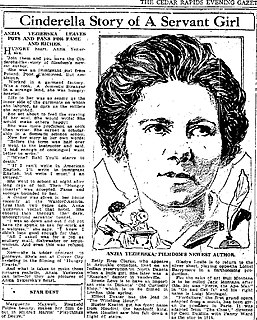A Quote by Charles Baudelaire
Our squalid society rushed, Narcissus to a man, to gaze on its trivial image on a scrap of metal.
Related Quotes
When we are young we do not look into mirrors. It is when we are old, concerned with our name, our legend, what our lives will mean to the future. We become vain with the names we own, our claims to have been the first eyes, the strongest army, the cleverest merchant. It is when he is old that Narcissus wants a graven image of himself.
Why did the old Persians hold the sea holy? Why did the Greeks give it a separate deity, and own brother Jove? Surely all this is not without meaning. And still deeper the meaning of that story of Narcissus, who because he could not grasp the tormenting mild image he saw in the fountain, plunged into it and was drowned. But that same image, we ourselves see in all rivers and oceans. It is the image of the ungraspable phantom of life; and this is the key to it all.
They can romanticize us so, mirrors, and that is their secret: what a subtle torture it would be to destroy all the mirrors in the world: where then could we look for reassurerance of our identities? I tell you, my dear, Narcissus was so egotist...he was merely another of us who, in our unshatterable isolation, recognized, on seeing his reflection, the beautiful comrade, the only inseparatable love...poor Narcissus, possibly the only human who was ever honest on this point.
We are Jesus Christ's; we belong to him. But even more, we are increasingly him. He moves in and commandeers our hands and feet, requisitions our minds and tongues. We sense his rearranging: debris into the divine, pig's ear into silk purse. He repurposes bad decisions and squalid choices. Little by little, a new image emerges.
To Whom does our God say, 'in our image' (Gen. 1:26), to whom if it is not to Him who is 'the brightness of His glory and the express image of His Person' (Heb. 1:3), 'the image of the invisible God' (Col. 1:15)? It is then to His living image, to Him Who has said 'I and My Father are one' (Jn. 10:30), 'He who has seen Me has seen the Father' (Jn. 14:9), that God says, 'Let us make man in our image'.






































